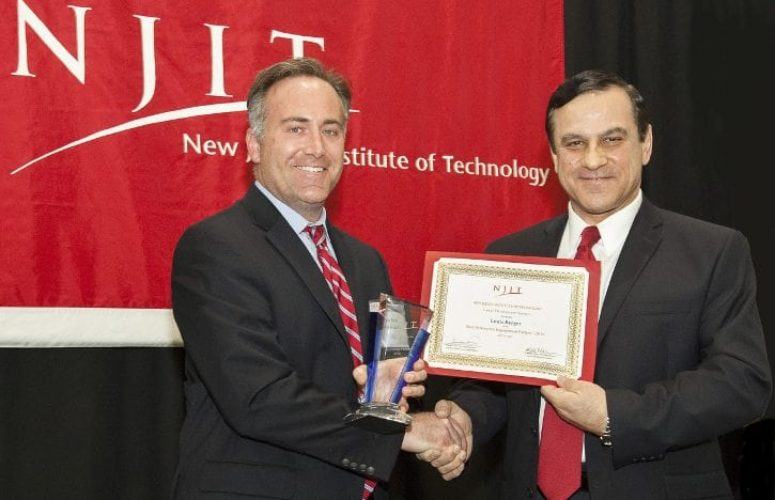
NJIT Receives $1 Million Grant for Pioneering Research in Biophysics and Nanotechnology
On Jul 8, 2016New Jersey Institute of Technology (NJIT) has received a $1 million grant from the W.M. Keck Foundation for a three-year project titled “Engineering New Materials Based on Topological Phonon Edge Modes.” This project, a partnership with Yeshiva University, will seek to elucidate the fundamental dynamics of cell division and other functions of living cells, as well as lay the groundwork for the fabrication of a new class of metamaterials with novel physical properties and functionalities.
“We are thrilled to have received this prestigious grant from the Keck Foundation,” said NJIT President Joel Bloom. “It will support transformational research by our world-class faculty, who are pushing the edge of the envelope in biophysics, nanotechnology and materials science.”
“This exciting grant from the Keck Foundation will help advance NJIT’s far-reaching goals to promote groundbreaking multidisciplinary research as part of 2020 Vision, the university’s strategic plan,” said Provost and Senior Executive Vice President Fadi Deek. “The Keck grant is an important milestone in our efforts to elevate NJIT to a top-tier research institution.”
The co-PIs of the project are Dr. Camelia Prodan, associate professor of physics at NJIT and Dr. Emil Prodan, professor of physics at Yeshiva University. The Prodans have already published a seminal paper demonstrating the role of the unique vibrations known as topological phonon edge modes in the functioning of microtubules — essential skeletal material in eukaryotic cells. Topological phonons are quanta of sound or vibrational energy that are confined to the surface or edge of a material.
This project will adapt recent NJIT research breakthroughs in nanotechnology to provide the first experimental verification of the key role that these topological phonons play in many fundamental cellular processes, including cell division and movement. The team will develop new microfluidic devices to stabilize microtubules and drive acoustic modes in them.
In addition, based on the results of their study of microtubules and topological phonon edge modes, the research team will seek to predict and fabricate a new class of materials. These new materials would be topological phononic crystals and would have a wide array of applications, including energy-efficient solar cells, sound deadening and amplification, and insulation.
Along with Dr. Camelia Prodan, members of the research team at NJIT are Dr. Reginald C. Farrow and Dr. Alokik Kanwal. Dr. Farrow, who applies nanoscience to the study of biological materials, was at Bell Laboratories before coming to NJIT. Dr. Kanwal is an expert in the fields of electronics design, manufacturing processes and nanotechnology. The grant will also provide funding to support two NJIT graduate students studying physics.
This project will be the first major collaboration between NJIT and Yeshiva University.
Based in Los Angeles, the W. M. Keck Foundation was established in 1954 by the late W. M. Keck, founder of the Superior Oil Company. The Foundation’s grant making is focused primarily on pioneering efforts in the areas of medical, science and engineering research. The Foundation also maintains an undergraduate education program that promotes distinctive learning and research experiences for students in the sciences and in the liberal arts, and a Southern California Grant Program that provides support for the Los Angeles community, with a special emphasis on children and youth from low-income families, special needs populations and safety-net services.
Related Articles:





